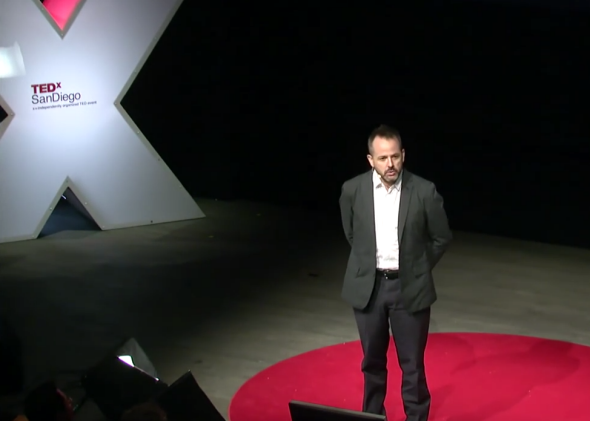“Takes one to know one” is apparently Benjamin Bratton’s motto, because he gave a 12-minute talk at TEDxSanDiego last week explaining why TED speeches are potentially damaging to society.
Bratton, a visual art professor at University of California-San Diego, says in the talk (which he also published in the Guardian) that instead of promoting his own ideas or a book, he wants to address “TED itself, what it is and why it doesn’t work.” He goes on to make some harsh comparisons and tough criticisms of TED. And he has a point.
Bratton, whose speech was at a locally organized TEDx event and not an official TED conference, says that he has no problem with smart people conveying potential groundbreaking ideas, but that TED talks are plagued by oversimplification and hobbled by their reliance on factors like a presenter’s likability. He says that TED talks are “making our best and brightest waste their time—and the audience’s time—dancing like infomercial hosts.”
TED talks are supposed to be about communicating to solve problems, even if speakers are sometimes just wrong. And as TED’s curator Chris Anderson writes in a reubttal to Bratton, published Wednesday in the Guardian, “The number one question facing anyone who wants to help improve the quality of public discourse is: how the hell do you get a look-in?”
Anderson’s point is that if TED succeeds in captivating conference-goers and online viewers, then it is a valuable and worthwhile medium for distrubting information. He writes, “Can you share something worthwhile in 18 minutes? Definitively, unequivocally yes,” citing famous short speeches like the Gettysburg address and the “I Have a Dream” speech.
But toward the end of his talk, Bratton says,
“Problems are not ‘puzzles’ to be solved. That metaphor implies that all the necessary pieces are already on the table, they just need to be rearranged and reprogrammed. It’s not true … If we really want transformation, we have to slog through the hard stuff … we need to raise the level of general understanding to the level of complexity of the systems in which we are embedded and which are embedded in us.”
The debate about whether TED is a valuable medium taps into broader questions about the value of rewording, and in that process often simplifying, difficult topics so lay people can understand them and participate in discussion about them. But Bratton’s point that solutions and answers to serious problems may not be available like the pieces of a puzzle is a valuable point.
Probably the harshest moment is when Bratton says, “TED stands for Technology, Entertainment, Design. To me TED stands for: middlebrow megachurch infotainment.” He may be a little intense, but the dude certainly has a point of view.
